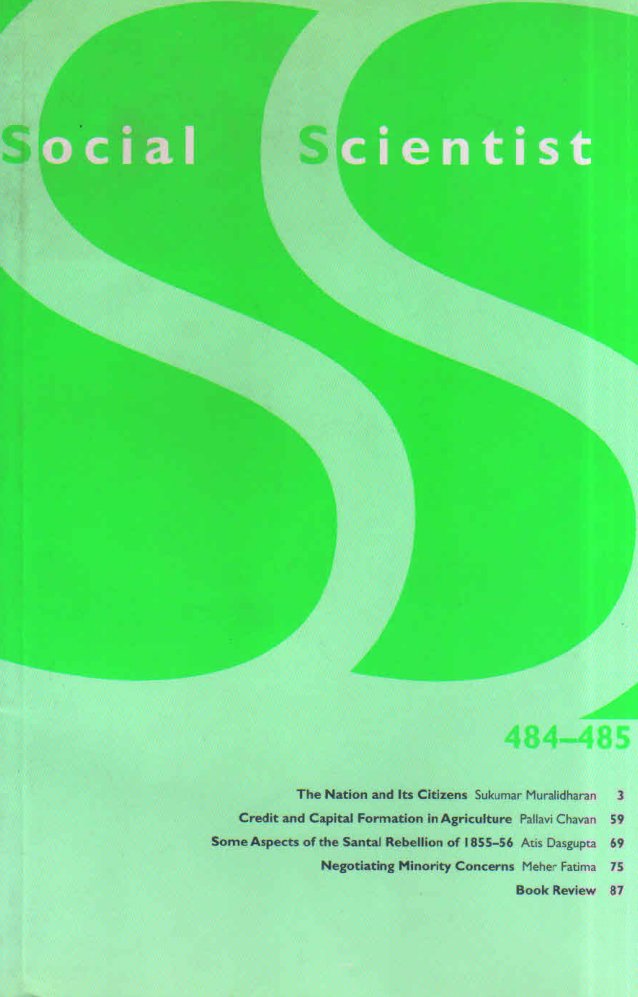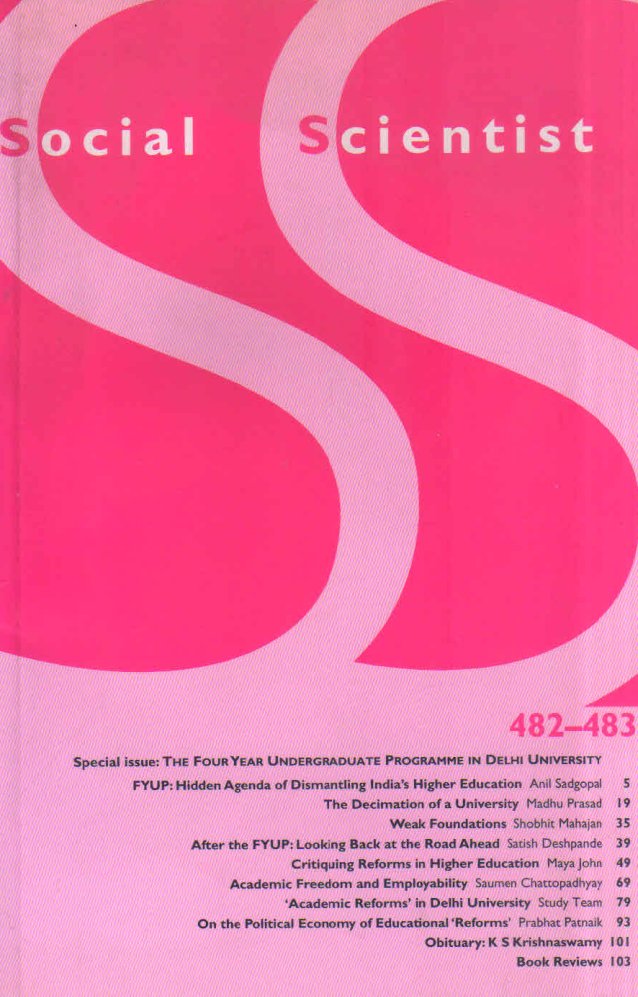Editorial Note, Sep-Oct, 2013
A comprehensive essay by Sukumar Muralidharan on ‘The Nation and Its Citizens’ constitutes the lead article in the current number of Social Scientist. The article sets the stage for a discussion of what should be the nature of political praxis…

